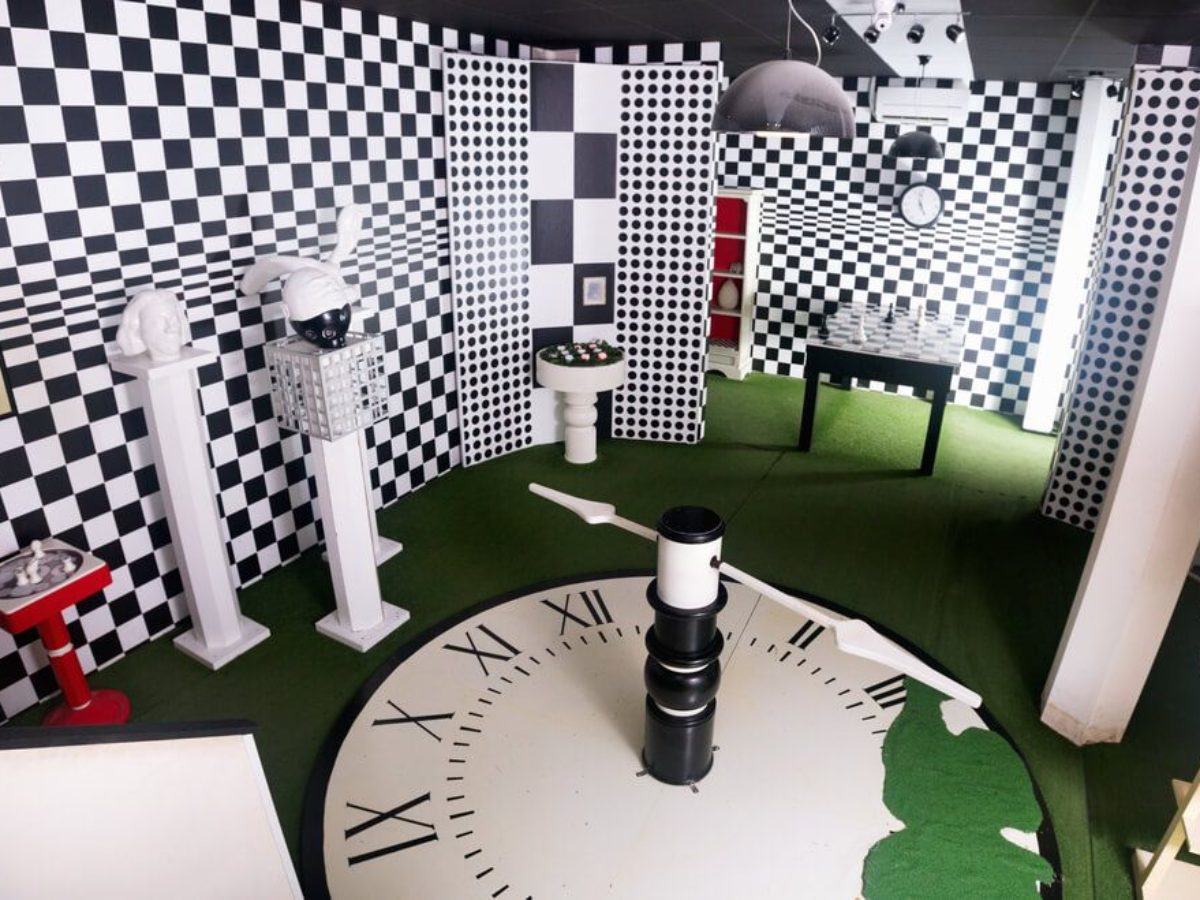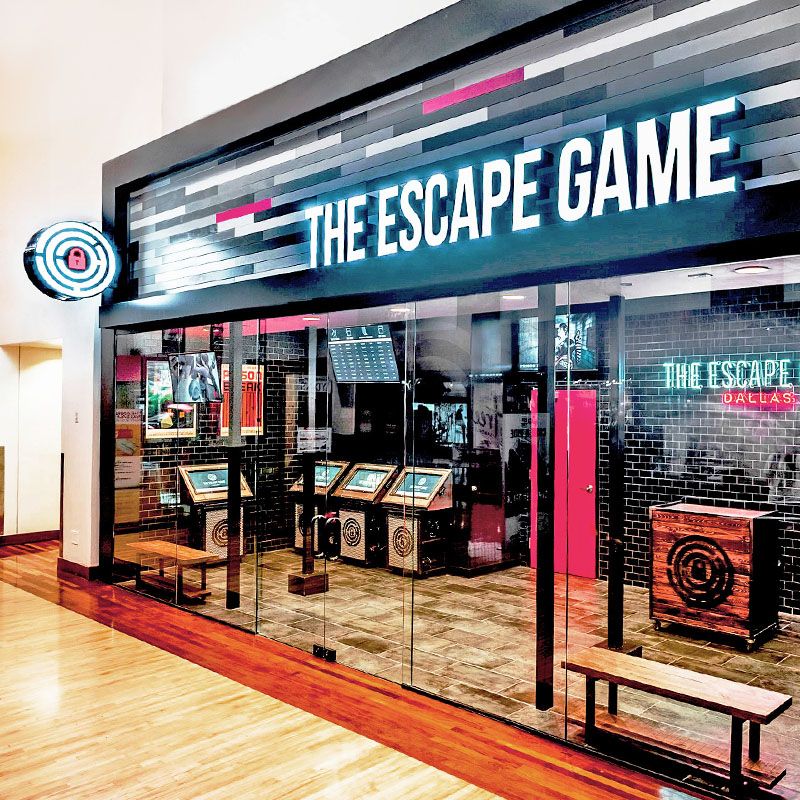Explore the Best Escape Room in Minneapolis-- Book Your Experience
Explore the Best Escape Room in Minneapolis-- Book Your Experience
Blog Article
Group Approaches: Just How to Work together Successfully in an Escape Area
Groups must proactively listen to each member's understandings, assign functions that align with specific strengths, and maintain regular check-ins to guarantee focus and stop redundancy. By promoting a setting that values communication and versatility, groups can considerably enhance their effectiveness and success rates.
Establish Clear Communication

To facilitate clear communication, it is necessary to mark a main point of call for info dissemination. This duty entails summarizing findings and suggested methods to guarantee every person stays on the very same page. Additionally, taking on a systematic approach to discussions can prevent disorderly exchanges. For example, brief, concentrated updates from each employee can keep the team notified without frustrating them with details.

Assign Functions Purposefully
While clear communication establishes the foundation for reliable teamwork, assigning duties tactically makes sure that each team member's strengths are made use of successfully. In a getaway space situation, the time-sensitive and complicated nature of challenges demands a well-organized approach to task delegation. By recognizing and leveraging individual expertises, groups can enhance their analytical capabilities and enhance overall performance.
Someone with a keen eye for detail could stand out in finding hidden objects, while a sensible thinker can be much better fit to resolving problems. This function commonly requires solid organizational and social abilities.
2nd, guarantee that functions are flexible and versatile. As brand-new difficulties emerge, the team must be able to pivot, reapportioning jobs as needed. This versatility aids preserve momentum and avoids traffic jams that can occur because of inflexible duty tasks.
Eventually, a critical method to role job not only makes best use of the staminas of each employee however also promotes a cohesive setting, driving the team towards an effective escape.
Use Diverse Abilities
Acknowledging and harnessing the diverse skills within your group can dramatically elevate your efficiency in an escape area. Each staff member brings distinct strengths to the table, and efficiently leveraging these capacities can accelerate analytical and enhance total efficiency. A group participant look at these guys with strong analytical abilities may succeed at decoding complicated codes or patterns, while another with eager empirical capacities might promptly detect hidden hints that others could ignore.
Reliable communication is essential to making use of these diverse skills. Motivate staff member to articulate their understandings and concepts immediately, making discover this sure that all prospective remedies are taken into consideration. This comprehensive approach promotes a dynamic setting where creative thinking and critical thinking can grow. In addition, designating jobs that straighten with each member's staminas can avoid bottlenecks and make sure that development is continuous.
Moreover, variety in skills typically equates to variety in assuming designs, which is very useful in a getaway space setup. While some obstacles might call for sensible thinking and accuracy, others may take advantage of creative and association of ideas. By identifying and leveraging this diversity, groups can resolve a broader variety of difficulties more successfully, thus increasing their chances of an effective getaway.
Manage Time Efficiently

First, allocate first mins for a quick survey navigate to this site of the room. Determine noticeable puzzles and divide jobs based upon team members' toughness, making certain that nobody is still. Set inner time checkpoints to examine development regularly; for instance, goal to have half the puzzles solved by the mid-point of the video game. This method can help maintain the group concentrated and avoid time from escaping undetected.
Additionally, prevent one-track mind. If a challenge is taking also long, turn staff member or go on to an additional obstacle, returning later on with fresh viewpoints. Communication is vital-- maintain everyone upgraded on addressed challenges and continuing to be jobs to stay clear of redundant initiatives.
Lastly, utilize any kind of hints or hints moderately but purposefully - best escape room. Recognizing when to ask for help can conserve useful time. By adhering to these time management principles, teams can substantially improve their chances of a successful and satisfying getaway room experience
Debrief and Reflect
Reflection is a vital facet of team development and enhancement in the context of escape spaces. Once the difficulty is completed, whether efficiently or not, it is vital for the team to take part in a structured debriefing session. This procedure permits staff member to analyze their efficiency, determine toughness, and determine locations for enhancement.
Start the debrief by reviewing what went well. Highlight specific instances of efficient communication, problem-solving, and cooperation. Recognizing these favorable behaviors enhances them and encourages their rep in future challenges.
Next, resolve the obstacles encountered. Go over moments of confusion, miscommunication, or inadequate techniques. Urge an open and positive discussion where group participants can share their viewpoints without concern of objection. This promotes a culture of constant improvement and learning.
Final Thought
Finally, effective cooperation in an escape area is based upon clear communication, tactical function assignments, the effective application of varied skills, and skillful time monitoring. Normal check-ins and structured debriefings are important for maintaining emphasis and promoting continuous renovation. By producing a cohesive and flexible team environment, the chance of effectively resolving problems and accomplishing the objective of running away the area is substantially enhanced. This strategy not only ensures success however also advertises cumulative growth and learning.
Report this page